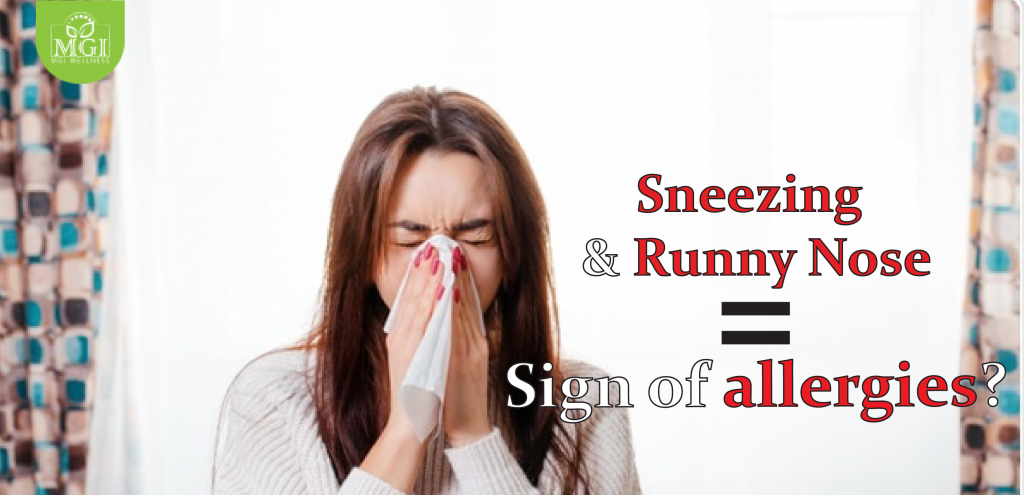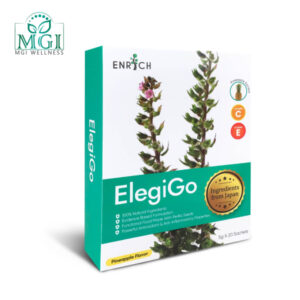Wellness
Blocked nose or runny nose all the time? That “cold” might be a sinus infection!
Watery eyes, sneezing, coughing and a stuffy nose: You’ve used up an entire box of tissues and your nose is bright red and sore from all the wiping and blowing.
It sounds and feels like a cold / flu , alright. But as time goes on, you start to wonder, why the symptoms still last for over two weeks and isn’t getting better, which even disturbed your daily activities? Perhaps not, it could be an attack on your sinuses.
What are Sinuses?
The sinuses are air-filled spaces in the skull located behind the forehead, cheeks, nose, and between and behind the eyes. The walls of the sinus cavities are lightly coated with mucus, which keeps the tissue moist and healthy, and also traps bacteria.As air passes through the sinus passages on the way to the lungs, the mucus helps humidify and filter the air.
Usually, mucus is able to drain out of these sinuses and air is able to circulate for the sinuses to function properly. However, when the sinus cavities around your nose become inflamed and swollen, this will interfere with the drainage, causing mucus build-up. If this drainage gets blocked, germs can grow and cause an infection called sinusitis.
What is Sinusitis?
Sinusitis, also known as sinus infection is the inflammation or swelling of the tissue lining the sinuses. Sinusitis can be caused by viral (common cold), bacterial or fungal infection. However, your risk of sinusitis may increase with some health conditions such as allergies (hay fever/food allergies/pollutants), nasal polyps or tumors, deviated nasal septum, enlarged or infected adenoids in children, tooth infection and immune system disorders.(1)
There are two types of sinusitis:
- Acute Sinusitis
Acute sinusitis has the shortest duration. It is most commonly caused by a viral infection due to common cold or allergies.It usually starts with cold-like symptoms such as a runny, stuffy nose and facial pain and often improves within two or three weeks.
- Chronic Sinusitis
Chronic sinusitis is long term sinus inflammation of about 12 weeks or more, and keeps recurring despite treatment.
Sinusitis in Malaysia
Sinusitis is a common problem worldwide and it is an ailment that is no stranger to Malaysians.The estimated prevalence of sinusitis in Malaysia is 12.8%. This means that around three million Malaysians are suffering from sinusitis at any one time. Among 55% of patients with sinusitis also had a history of allergic rhinitis.
Signs and Symptoms of Sinusitis
- Pain/ pressure in your sinuses
Pain is a common symptom of sinusitis.Inflammation and swelling cause your sinuses to ache with a dull pressure. You may feel pain or pressure in your forehead, on either side of your nose, in your upper jaws and teeth, or between your eyes. Sometimes, the pressure and pain are intense enough to interfere with sleep.
- Nasal congestion/ Stuffy nose
The infection causes swelling in your sinuses and nasal passages. Your inflamed sinuses may restrict how well you can breath through your nose and you also might not be able to smell or taste as well as normal due to nasal congestion. Your voice may also sound “stuffy”.
- Nasal discharge
Sinusitis causes runny nose and a lot of mucus production where it can be cloudy, green or yellow. You are unable to clear the sinuses no matter how often you blow your nose. Postnasal drip might happen where the discharge bypass the nose and drain down the back of the throat. You may feel a tickle, an itch, or even a sore throat. Your voice might sound hoarse and it will trigger a cough which often gets worse at night.
- Sinus headaches
The relentless pressure and swelling in your sinuses lead to headache. You will feel a deep and constant pain in your jaw, cheekbones, forehead or the bridge of your nose. It might even give you earaches and dental pain. Sinus headaches are often at their worst in the morning because fluids have been collecting all night long.
- Fatigue
Fighting a sinus infection demands energy from the body, so it is common to feel tired. Some people feel exhausted because they cannot breathe easily or are in pain.
- Fever
Some people develop a fever with a sinus infection. A fever is a sign that the body is fighting off an infection. Other symptoms associated with fever include chills, exhaustion, and muscle aches.
How to Know if I Have a Sinus Infection, Cold, or Nasal Allergy?
It can be difficult to tell the exact difference between a cold, allergies, and a sinus infection. Cold symptoms typically peak after three to five days and then improve within 10 days while a sinus infection lasts for more than 10 days.(2) If you have whitish thick mucus, you probably have a cold while nasal allergy produces clear, thin and watery mucus. If your mucus is cloudy, yellow or green in color, it is probably a sinus infection.
Nasal allergy is inflammation of the nose due to irritating particles such as pollen, dust, mold and pet dander. Symptoms of a nasal allergy can include sneezing, itchy nose and eyes, nasal congestion,and post nasal drip. A common cold or nasal allergy can transform into a sinus infection.
Talk with your doctor if your symptoms do not subside within 10 days . You will be asked to describe your symptoms and medical history.
Natural Remedies to Clear Up Sinus Congestion
Suffering from sinusitis is never any fun.Fortunately, sinus infections almost always get better on their own. The goal of remedies is usually to relieve your symptoms. There are plenty of effective natural home remedies may help to ease symptoms and speed up recovery and worth trying before you turn to over-the-counter medications for a sinus infection.
Try the following tips on how to get rid of sinus congestion:
- Steam Inhalation
Steam helps to moisten your sinus passages and thins out mucus that may have thickened over time.Add a few drops of peppermint or rosemary essential oil to a small tub of medium-hot water. Keep the vapor directed toward your face. Drape a towel over your head and inhale the steam for a few minutes.You might also take a hot shower, breathing in the warm, moist air to help ease pain and help mucus drain.
- Nasal Irrigation
Also known as saline irrigation, it involves pouring a saline solution in one nostril and letting it flow through your nasal cavities until it drains out the other nostril to clear your sinuses and improve your ability to breathe by flushing out bacteria-filled mucus and any allergens that are caught inside.
- Consider Using a Supplement, Such as the Enzyme Bromelain
Bromelain is a mixture of enzymes found in the pineapple. Bromelain has been studied for sinusitis and showed proven results for effectiveness in relieving sinus problems and reducing inflammation.
A pilot study of patients with chronic sinusitis published in 2013 found that taking 500 milligrams of bromelain six times a day for three months improved symptoms (postnasal drip, nasal obstruction, facial pain or pressure,headache) and quality of life.(3)
- Try Quercetin :The Powerful Herb
Quercetin is an antioxidant and a natural plant component found in onions, apples and green tea. For sinus problems, Quercetin has been found to has antihistamine properties and aid in the reduction of inflammation and nasal congestion.
The Alternative Medicine Review article recommends quercetin as helpful for sinusitis, suggesting a typical oral dose of 400 to 500 mg taken three times per day while the water-soluble quercetin molecule might be used in smaller doses, typically 250 mg three times daily.(4)
- Stay Hydrated
Staying hydrated keeps your sinuses moist, helps flush the virus out and decreases the thickness of sinus mucus. Remember to drink at least 1.5-2 liters of water daily. Avoid alcohol and caffeine which lead to dehydration.
- Sleep with Your Head Elevated
Congestion tends to be worse at night because it is harder for the nose and sinuses to drain. This lead to pooling of mucus in the head, making it harder to breathe and might cause a sinus headache in the morning. Try elevating the head on a few pillows to help the sinuses drain more easily, reducing congestion.
Although sinus infections are common, but they can wreak so much discomfort in everyone’s daily lives and impaired quality of life. However, it takes time to get over sinusitis. Be sure to keep a positive mind and get plenty of rest to help your body fight the infection.
References:
- Martin, L.J. (2018, July 9) What Is Sinusitis?
https://www.webmd.com/allergies/sinusitis-and-sinus-infection
- Ratini, M (2015, July 1) Is It A Cold Or A Sinus Infection?
https://www.webmd.com/cold-and-flu/features/cold-sinus-infections
- Büttneret al. Efficacy and tolerability of bromelain in patients with chronic rhinosinusitis – a pilot
study. B-ENT, 2013, 9, 217-225
- Steve Helms et al. Natural treatment of chronic rhinosinusitis. Alternative Medicine Review: a
Journal of Clinical Therapeutic. 2016, 11(3):196-207
PROMOTION



I truly appreciate this article post. Will read on…